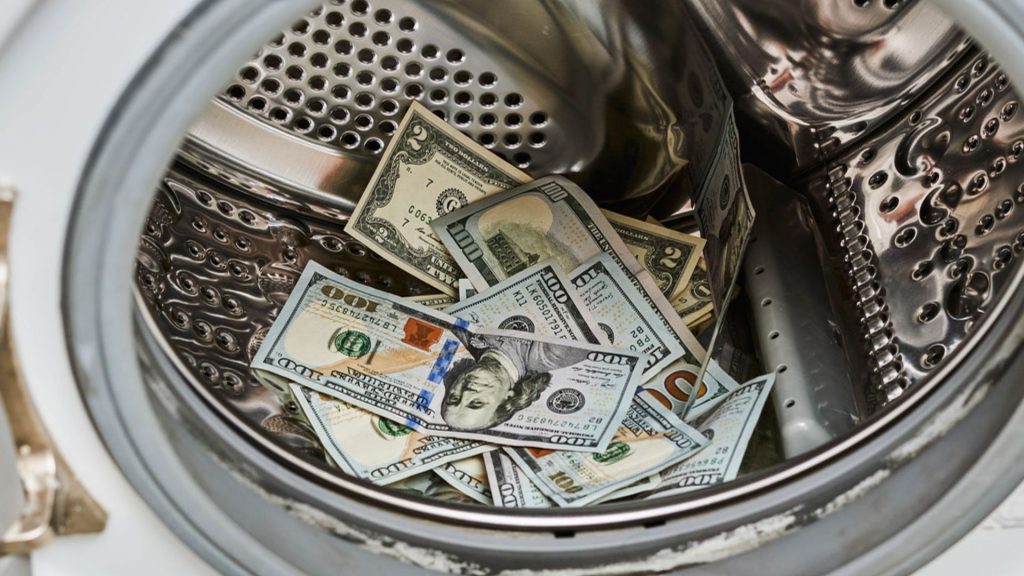How does money laundering work? Money laundering is the illegal process of making large amounts of money generated by criminal activity, such as drug trafficking or terrorist funding, seem to have come from a legitimate source. The criminal activity makes dirty money, and the process launders it to appear clean.
Money laundering is a major financial crime that both white-collar and street-level criminals perform. Most financial companies have anti-money laundering policies to find and prevent this activity.
How Does Money Laundering Work?
Money laundering is crucial for criminal organizations that want illegally obtained money to be used effectively. Dealing with large amounts of illegal cash is not suitable and dangerous. Criminals require a way to deposit the money in legitimate financial institutions, yet they can only do so if it seems to have come from legitimate sources.
Three steps are usually involved in money laundering: placement, layering, and integration.
Placement inserts the dirty money into the legitimate financial system.
Layering conceals the source of the money by a series of transactions and bookkeeping tricks.
In integration, the laundered money is obtained from the legitimate account to be used for whatever reasons the criminals want.
In real-life situations, this template may differ. Money laundering may not involve all three stages, or some stages could be combined or repeated many times.
There are many ways to launder money, from the simple to difficult. A cash-based business owned by a criminal organization is one of the most common examples.
Money Laundering Variants
Smurfing is a form of money laundering in which the criminal breaks up large chunks of cash into multiple small deposits, often spreading them over many different accounts, to avoid detection. Money laundering can also be done through currency exchanges, wire transfers, and mules cash smugglers, who slide large amounts of cash across borders and deposit them in foreign accounts, where money-laundering enforcement is lenient.
Other methods also involve investing in commodities, such as the following:
Gems and gold that are easily moveable to other jurisdictions
Discreetly investing in and selling valuable assets such as real estate, cars, and boats, gambling, and laundering money at casinos, counterfeiting
Using shell companies.
Electronic Money Laundering
The Internet has given a new taste to the old crime. Detection of illegal transfer of money has become even more difficult after the increase of online banking institutions, anonymous online payment services, and peer-to-peer transfers with mobile phones. Integration has become almost impossible to detect with the proxy servers and anonymizing software. Money can be transferred or withdrawn, leaving little or no trace of an IP address.
Online auctions and sales, gambling websites, and virtual gaming sites also launder money, where ill-gotten money is converted into gaming currency, then back into real, usable, and untraceable clear money.
The newest frontier of money laundering includes crypto-currencies, such as Bitcoin. They are increasingly being used in blackmail schemes, the drug trade, and other criminal activities due to their relative anonymity compared to more conventional forms of currency.
Cybercrimes slowly caught up to anti-money laundering laws since most the laws are still based on detecting dirty money as it passes through traditional banking institutions and channels.
Why Is It Important To Combat Money Laundering?
Anti-money laundering seeks to stop criminals from profiting from their illegal enterprises, thus removing the main motivation for them to engage in such nefarious activities. Millions of people worldwide are threatened by illegal and dangerous activities such as drug trafficking, people smuggling, terrorism funding, smuggling, extortion, and fraud. As the proceeds of such activities are legitimized by money laundering, combating money laundering may decrease in criminal activity and hence a significant benefit to society.
How Are Crypto-Currencies Being Used In Money Laundering?
Convertible virtual currencies or CVC, another term for crypto-currencies, have become the currency of choice in many online illicit activities. Besides being the preferred form of payment for buying ransomware tools and services, online exploitative material, drugs, and other illegal goods online, CVCs are extensively used to layer transactions and obfuscate the origin of money derived from criminal activity. Criminals use money laundering techniques involving crypto-currencies, including mixers and tumblers that break the connection between an address (or crypto wallet) sending crypto-currency and the address receiving it.
How Is Money Laundering Conducted In Casinos?
The most common form of money laundering in casinos is buying chips from the casino with cash and getting checks in return, often without gambling or placing minimal bets.
What Are Some Ways In Which Real Estate Is Used For Money Laundering?
Some common methods used by criminals for money laundering through real estate transactions include undervaluation or overvaluation of properties, buying and selling properties in quick succession, using third parties or companies that distance the transaction from the criminal source of funds, and private sales.
Final Thoughts
Money laundering is the process by which criminals conceal the illicit origin and ownership of the proceeds of their illegal activities. Criminals use money laundering to disguise the proceeds of their crimes as funds of apparently legal origin. If successful, this procedure lends legitimacy to the proceeds, which the criminals retain control over. Money laundering can be a relatively simple process at the local or national level, or it can be a highly sophisticated one that takes advantage of the international financial system and involves numerous financial intermediaries from various jurisdictions.





